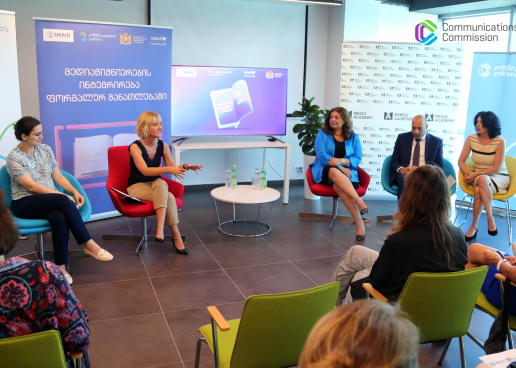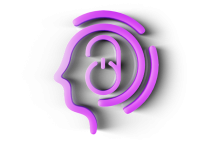Integrating Media Literacy into Formal Education – ComCom Launches a New Project with UNICEF and Education Ministry

The Communications Commission, in partnership with UNICEF and the Ministry of Education and Science of Georgia, has launched a new process aimed at integrating media literacy into formal education. The project is being implemented with the financial backing of USAID.
The first stage of the project will consist of research and evaluation of media literacy needs. Together with the Ministry of Education and the National Centre for Teacher Professional Development (NCTPD), the Commission will develop a media literacy education standard, a textbook and appropriate training modules for teachers at every school level. NCTPD trainers and teachers will be trained using the new resources developed during the project.
“Media literacy is one of the integral components of the national education plan. It helps develop critical thinking and effective communication skills among children and young people, allowing them to become active citizens. Integrating media literacy into formal education will help youngsters navigate through the information which they get through various media sources on a daily basis. UNICEF is delighted to work with the Communications Commission, the Ministry of Education and Science and USAID to support young people on this journey,” said the UNICEF representative in Georgia Ghassan Khalil.
Commissioner Natia Kukuladze believes that this kind of project is especially important in the modern age. Together with the Ministry of Education and Science, the Commission has already implemented numerous successful projects for teachers and pupils. However, integrating media literacy into formal education is a particularly important step.
“The Communications Commission has been actively working on developing media literacy in Georgia for more than 4 years. Disinformation, misinformation and fake news present a great challenge to the world today. Citizens armed with knowledge and media literacy are the greatest weapon to combat these threats. We are delighted to implement another important and effective project with the support of UNICEF and USAID. Naturally, the Ministry of Education and Science will be directly involved in the implementation process, for which we are very grateful. The ministry has already helped us implement numerous successful projects for teachers and pupils. However, integrating media literacy into formal education is a particularly important step,“ Natia Kukuladze stated.
According to the Ministry of Education and Science, several educational activities aimed at integrating media literacy into formal education have already been planned. These activities will be implemented under the national education plan.
“Media literacy is one of the most important competencies in the modern digital age, which is saturated with numerous and diverse media products. According to the national education plan, media literacy involves enhancing the media education of pupils at every school level. Without media literacy, it is hard to imagine pupils achieving social, emotional or cognitive development and attaining functional skills such as critical thinking, creativity, communication or citizenship. According to the national education plan, numerous learning activities have been implemented in formal education to improve the quality of media education and help pupils develop the ability to confidently navigate the complex and diverse media space. Our partnership with the Communications Commission will further strengthen the process of implementing media literacy in the learning routine,” First Deputy Minister of Education Tamar Makharashvili stated.










